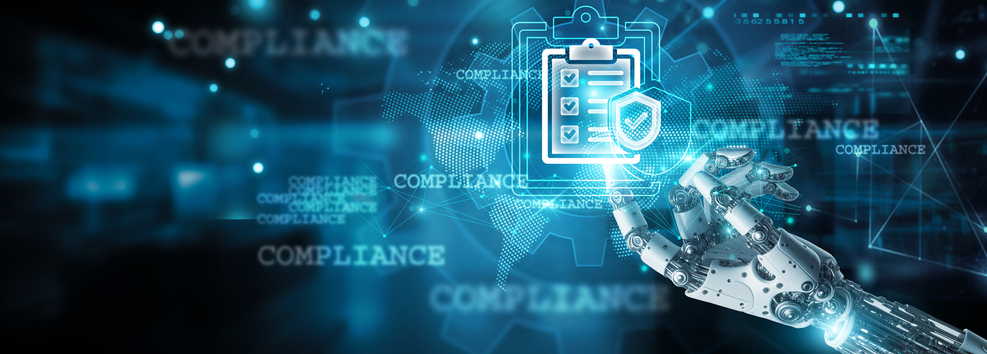Most business owners don’t intentionally ignore cybersecurity rules. More often, they are simply unaware of what is required or assume their existing protections are good enough. Unfortunately, that assumption can be costly. A data breach or failed audit can lead to large fines, lost partnerships, and serious damage to your reputation. That is why cybersecurity compliance is something every business needs to take seriously, no matter the size or industry.
With years of experience providing cybersecurity compliance in Naperville and throughout Illinois, we are no strangers to getting businesses like yours up to speed and above board.
Whether you work in healthcare, financial services, education, or professional consulting, there are likely security standards you are required to meet. If those standards are not clear to you yet, you are not alone, and that is exactly what this blog will help you understand.
What is Cybersecurity Compliance?
Cybersecurity compliance means following a set of security rules or frameworks that are either required by law, enforced by your industry, or demanded by your clients. These rules are designed to help businesses protect sensitive information such as customer records, financial data, health records, or intellectual property.
In most cases, compliance is not optional. If you process payments, accept insurance information, store client data, or handle personal records of any kind, there is a good chance that a regulation applies to you.
That could include HIPAA for healthcare providers, PCI DSS for businesses that handle credit card data, or CMMC for companies that work with government contracts.
What Happens if You Are Not Compliant?
The consequences of failing to meet cybersecurity compliance standards can be serious. Many business owners don’t realize that even a small mistake, such as not properly securing an email account or failing to encrypt a file, can trigger a violation.
Here are just a few of the risks:
- Fines from regulatory agencies based on the severity of the issue or the length of time it went unaddressed
- Legal action if a client or partner suffers harm due to your business failing to protect their information
- Loss of contracts or eligibility to work in regulated industries such as healthcare, finance, or government
- Damage to your company’s reputation if clients no longer trust you with their sensitive information
- System downtime or data loss from preventable attacks that result in long recovery times and lost revenue
Unfortunately, compliance is not something that gets handled once and never revisited. Most standards require ongoing monitoring, employee training, policy updates, and regular security reviews.
What Does Cybersecurity Compliance Actually Involve?
While each framework has its own checklist, most compliance programs include the same core building blocks. These steps help reduce risk, demonstrate accountability, and create a more secure environment for your data and systems.
- Risk assessments are used to identify gaps in your current security setup and prioritize what needs to be addressed first
- Access control ensures that only authorized users can view, edit, or share protected information
- Encryption helps protect data both while it is being stored and while it is being transmitted over networks
- Regular system monitoring allows you to detect and respond to threats quickly before they cause widespread damage
- Employee training reduces the chance of human error, which remains one of the leading causes of data breaches
- Incident response planning ensures that your business knows what to do and who to notify if something does go wrong
- Policy documentation creates a paper trail showing what steps your business has taken to stay compliant
These are not just technical items for your IT team. They are part of a larger business strategy to protect operations, clients, and long-term success.
How Magnitech Helps You Stay Compliant
If all of this feels overwhelming, you’re not alone. Many of the businesses we work with come to us unsure of where to start or unaware that they were already falling short of requirements. Our role is to make cybersecurity compliance easier to understand and more practical to maintain.
Magnitech provides step-by-step support to help you meet the standards that apply to your industry. That starts with a thorough assessment of your systems and current policies. From there, we help you close gaps, strengthen weak points, and put repeatable systems in place so that compliance becomes part of your regular operations, not a stressful once-a-year scramble.
We work with businesses in healthcare, law, finance, construction, education, and other industries across Illinois. We help them implement secure tools, train their staff, and respond to compliance changes as they come up. If you are not sure which compliance rules apply to your business, we can help with that too.
To learn more about the cybersecurity services we offer, visit our cybersecurity solutions page.
The First Step is the Most Important One
Cybersecurity compliance does not need to be confusing or overwhelming. With the right partner, it becomes a manageable process that supports your goals and strengthens your business. Whether you are starting from scratch or looking to improve your current setup, Magnitech is here to help you get it right and keep it simple.
We have helped businesses across Illinois stay compliant, reduce risk, and protect the information that matters most. If you are ready to take the first step, we are ready to walk with you.
Schedule your free consultation today.
Frequently Asked Questions
Do small businesses really need to worry about compliance?
Yes. Even if you are a small business, you may be handling information that falls under compliance rules. If you process payments, store client records, or work in a regulated industry, compliance applies to you.
What is the difference between cybersecurity and compliance?
Cybersecurity is about protecting your systems. Compliance is about proving that you have done so according to required standards. You need both in place.
Can I handle compliance on my own?
You can try, but it often involves multiple tools, policies, and ongoing documentation. Many businesses prefer to work with a provider like Magnitech to make the process easier and more reliable.
How often does compliance need to be reviewed?
Most regulations require annual reviews at minimum, and many suggest quarterly check-ins. Systems, threats, and rules change, so staying current is important.
How do I know which compliance standards apply to me?
It depends on your industry, the data you collect, and the clients you work with. During your consultation, we will help you identify the frameworks that apply and what steps you need to take next.






